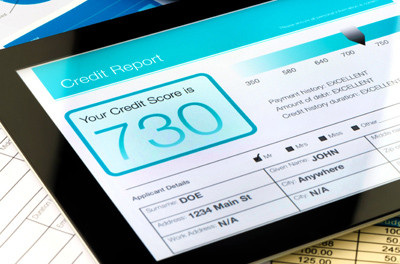You already know how important it is to pay your credit card bill on time. Until now, you’ve managed to avoid getting into the downward spiral of late fees, bad credit, and interest rate hikes that can turn even small purchases into life-damaging debt. But it’s the holiday season, and spending on your credit card is easier than digging spare change out from under the couch. What do you do when the credit card bill comes next month and you can’t pay it off?
We hope that you will never find yourself in this situation, but the reality is that it happens sometimes, whether it’s due to excess holiday spending or falling back on credit cards for an emergency. While prevention is the best medicine, there are a number of things you should do as soon as you realize you won’t be able to make your minimum payment.
Step 1: Come Up With a Plan
Before you call your creditors, take a moment to assess your situation. Many creditors are willing to extend payment due dates on a one-time basis, but you’ll need to have a different conversation if you don’t know when you’ll be able to pay your bill. Arm yourself with knowledge, including your monthly income, the reason you are unable to pay your bill right now, and when you think you’ll be able to make your payment.
Step 2: Notify Your Credit Company A.S.A.P.
Call your credit card company on the phone as soon as you realize you can’t pay your bill — don’t get stuck on Step 1 if it prevents you from making the call. The sooner you call your creditors, the more good faith you establish. Be brief and clear about explaining your problem, and make sure to ask for a ticket number so you know your problem has gone on the record, and so you don’t have to explain it again next time you call.
Step 3: Negotiate a Solution
Tell the customer service representative how you would like to approach the situation. Be cautious when estimating time frames — it’s better to pay on time, every time, than to try to pay your bill quickly and fail. Your creditor may have a specific way of handling bill nonpayment, so work together to agree upon terms that both you and your creditor are comfortable with.
Step 4: If Necessary, Ask For a Hardship Variation
If you don’t know when you’ll be able to pay off your credit card bill, you may want to ask for a hardship variation, especially if you’re dealing with unemployment or other special circumstances. Hardship variations are a way of asking your creditor to change the terms of your contract to make it easier for you to pay off what you owe. Once you apply for it, your creditors must respond to you within 21 days, and you are owed an explanation if your application is denied.
Step 5: Don’t Neglect Other Payments
Never juggle bills to pay off your credit card — there are serious consequences for nonpayment of all types of bills. Don’t take out loans to cover costs, either, as this increases debt rather than repairing it. If you find that you are unable to pay off other bills in addition to your credit card, you may want to consider credit counseling, which can help repair your credit and get you out of the cycle of debt.



[…] Read the whole article here. […]